‘Creating chaos’: Russia fans flames in the Balkans to threaten EU and Nato
While all eyes are on Ukraine, Moscow’s manoeuvring in southeast Europe has stirred ethnic tensions and risks threatening fragile peace in several states, writes Borzou Daragahi

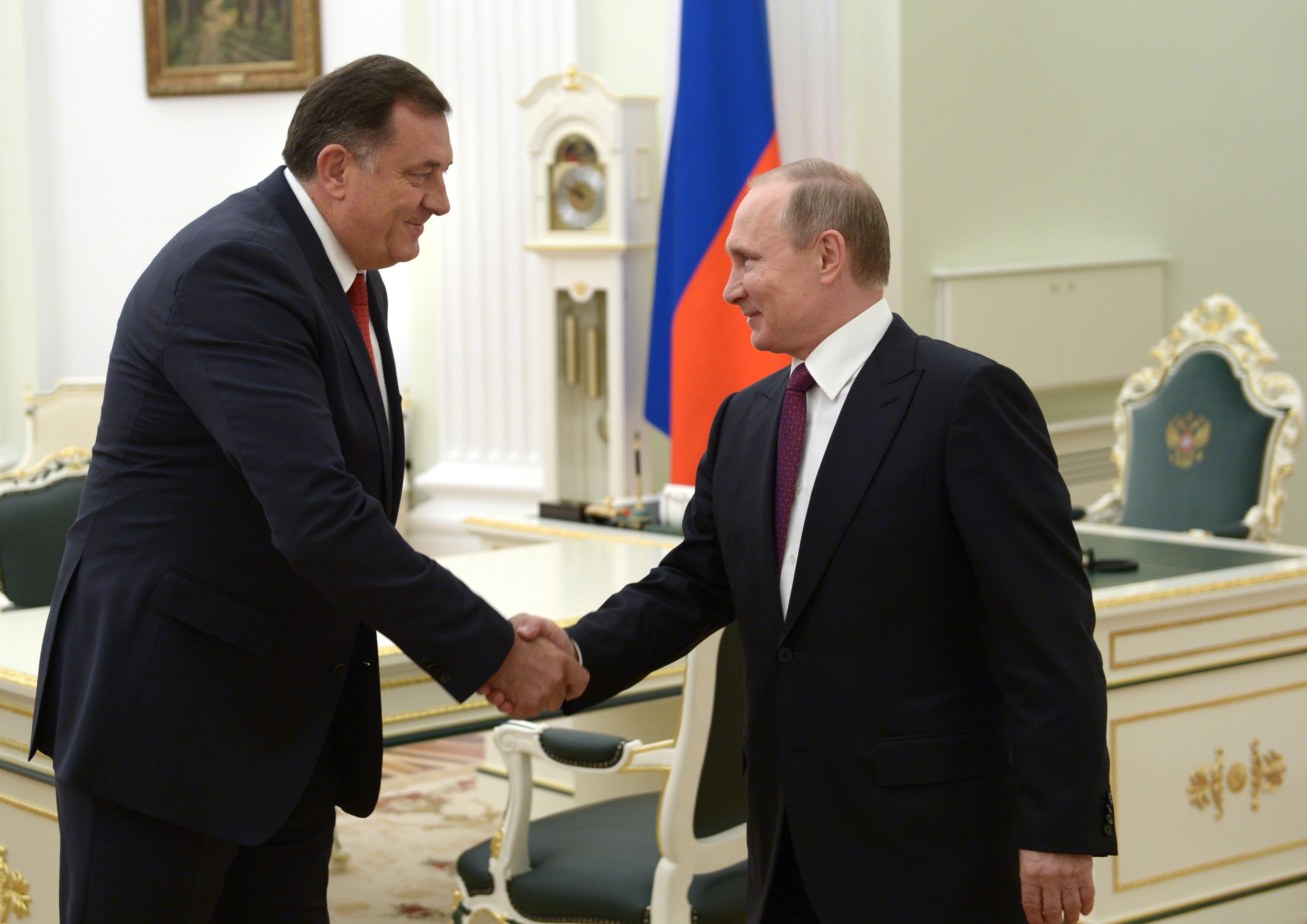
Your support helps us to tell the story
From reproductive rights to climate change to Big Tech, The Independent is on the ground when the story is developing. Whether it's investigating the financials of Elon Musk's pro-Trump PAC or producing our latest documentary, 'The A Word', which shines a light on the American women fighting for reproductive rights, we know how important it is to parse out the facts from the messaging.
At such a critical moment in US history, we need reporters on the ground. Your donation allows us to keep sending journalists to speak to both sides of the story.
The Independent is trusted by Americans across the entire political spectrum. And unlike many other quality news outlets, we choose not to lock Americans out of our reporting and analysis with paywalls. We believe quality journalism should be available to everyone, paid for by those who can afford it.
Your support makes all the difference.Even as Russia threatens to invade Ukraine, its gambits continue in southeast Europe, where it is playing a major role in shaking up an already fragile peace in the countries that make up the former Yugoslavia.
Russia is flooding Serbia with weapons. It is stirring up ethnic hatred in Bosnia-Herzegovina. It is threatening Kosovo and North Macedonia. It is meddling in Montenegro.
Kremlin support for ethnic Serbs has helped fuel the latest wave of surging nationalism that threatens to undo the peace in Bosnia-Herzegovina, potentially reignite armed conflict over Kosovo, and stir up political troubles in North Macedonia and Nato member Montenegro.
Across the Balkans, including in Nato and EU states such as Bulgaria and Hungary, Moscow is buying up or winning control of strategic assets in key sectors such as media, security, communications and finance.
“They have this infamous doctrine of reflexive control for controlling the enemy’s decision-making processes and we can expect Russia to trigger one thing in Ukraine but it can explode somewhere else,” said Ivana Stradner of the American Enterprise Institute, a think tank in Washington.
“I would not exclude the Balkans as another theatre for Russia to challenge the European Union and Nato and to show that both are paper tigers,” said Ms Stradner, who authored a paper, “Russia Is Playing With Fire in the Balkans,” published last month in the journal Foreign Affairs.
“They absolutely want to create chaos.”
Russia views the Balkans as an important region with strong long-standing cultural and historical links. It has repeatedly accused the west of destabilising and interfering in its politics, starting with Germany’s quick recognition of Croatia’s independence from Yugoslavia, which triggered the eventual dissolution of the nation.
Russia would like to create a mess and position itself as a mediator in the Balkans
“The policy of the United States and some other western nations in the Balkans, who seek to assert their dominance in the region, has been a serious destabilising factor,” Russian president Vladimir Putin said in a 2019 interview cited by Serbian media. “This will eventually increase mistrust and tension in Europe, rather than improve stability.”
But Moscow has also been accused of inflaming ethnic tensions via inflammatory coverage in state-backed media and planting distorted news in affiliated outlets.
In Serbia, Bosnia, and Montenegro, it has exploited ties between the Russian and Serbian orthodox churches to swing elections and sway public opinion.
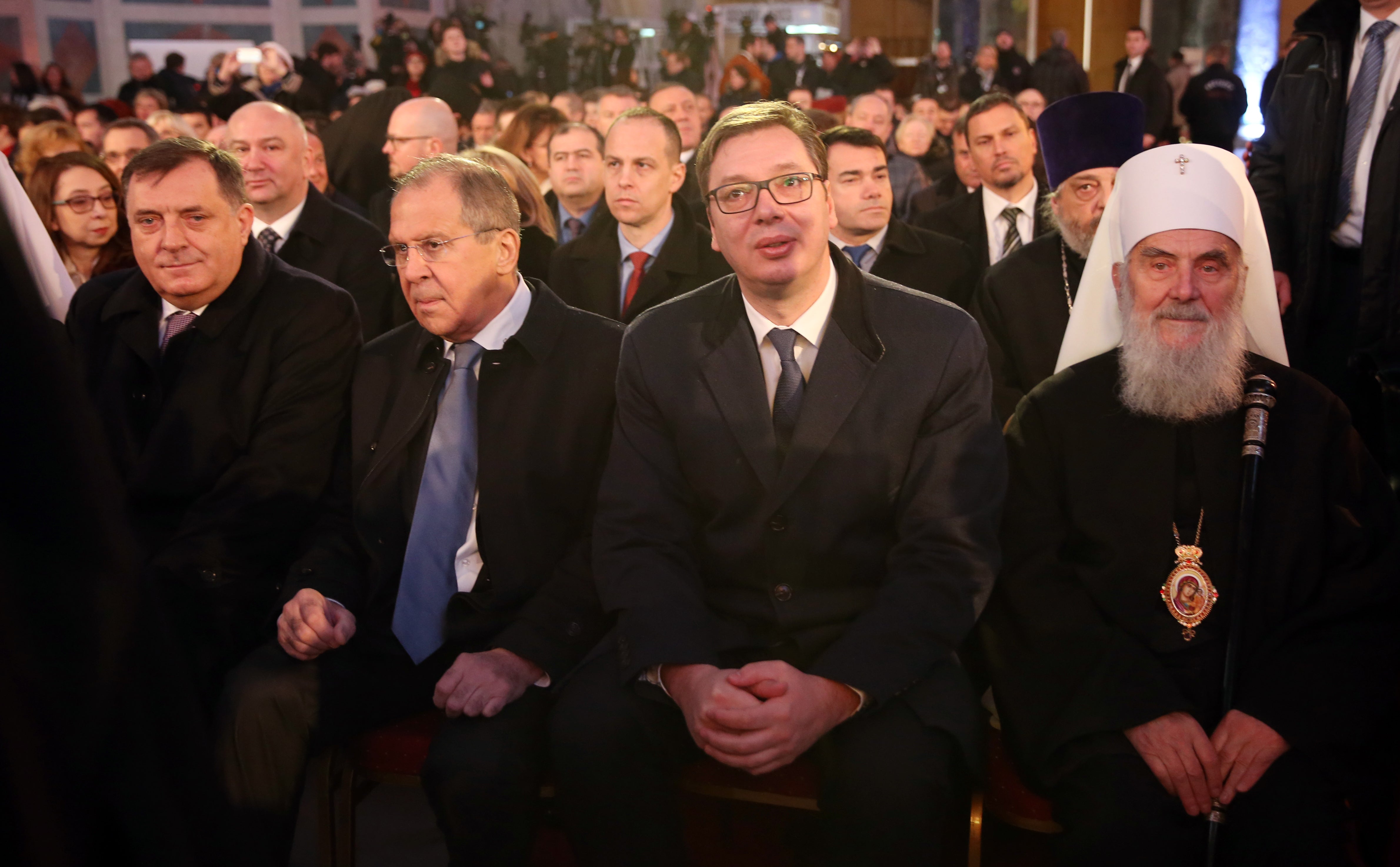
Moscow and Belgrade recently signed a pact to counter what they described as “colour revolutions” – popular uprisings against authoritarian rule that are regarded as western schemes by Russia and Serbia. Sputnik, Russia’s ubiquitous propaganda outlet, maintains a hub in Belgrade.
Sputnik Serbia “places narratives in all major media in the region that have nothing to do with the realities, but solidify the Russian view of international trouble spots,” said Thomas Brey, a longtime journalist and scholar who has covered the Balkans.
Russia has sold Serbia Pantsir-S1M air defense systems, battle tanks, armoured personnel carriers, helicopters and Kornet anti-tank guided missiles.
It has also set up a de facto intelligence-gathering outpost near Camp Bondsteel, the Nato base in Kosovo. A scandal erupted after it emerged last month that Serbian interior minister Aleksandar Vulin had spied on Russian dissidents gathering in Belgrade last year, handing transcripts to an associate of Mr Putin. One of those dissidents has since been arrested by Russian authorities. Mr Vulin has kept his job.
Ten years ago you didn’t have such an assertive Russia
Bosnia-Herzegovina, the most potentially dangerous hotspot in southeast Europe, has been a major focus of interest for Russia and its local ally Serbia, which is the Kremlin’s main proxy in the Balkans.
Bosnian Serb leader Milorad Dodik, running for re-election in an October 2022 vote, travels frequently to Moscow for meetings and photo-ops with Mr Putin that help bolster his popularity.
In early December, after meeting with Mr Putin, he declared Russia’s support in Serbs’ quarrels with other ethnic factions in Bosnia-Herzegovina. The Russian president has promised the Bosnian Serb entity, Republika Srpska, a new gas pipeline, fuel and a solar power plant, Mr Dodik said.
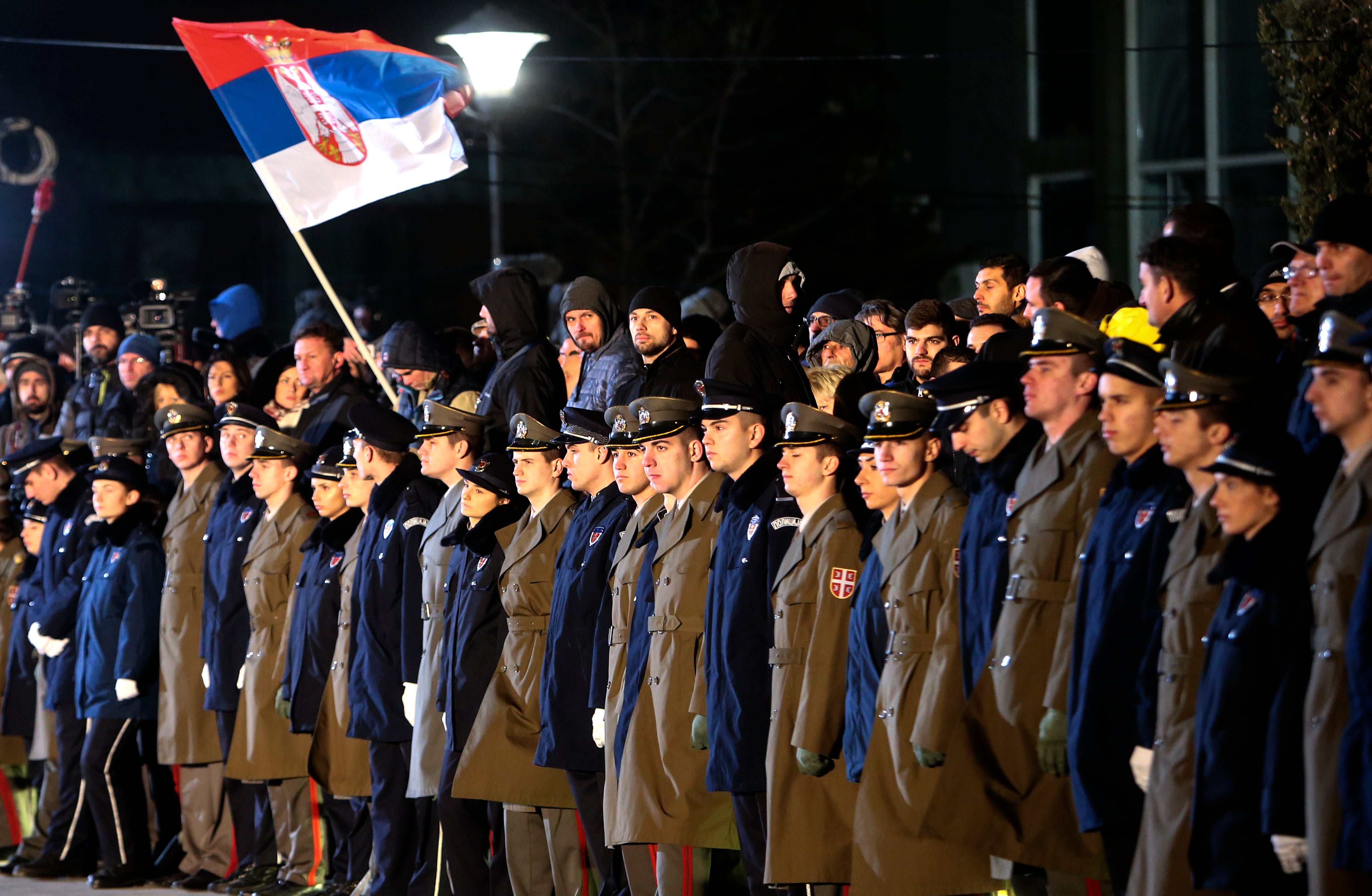
Despite corruption allegations, Mr Dodik is widely expected to defeat challengers in the upcoming vote, extending a political grip over Republika Srpska that stretches back to the 1990s.
“Before every election Dodik meets Putin for a few minutes,” said Srdjan Puhalo, a political analyst in Banja Luka, de facto capital of the Republika Srpska. “That’s enough for the average Serbian to see who is their friend.”
Meanwhile, “when the Russians come to Sarajevo, the only message is: don’t join Nato. Don’t join the European Union,” said Sead Tucalo, professor and dean of the faculty of political science at the University of Sarajevo.
Russia has blocked United Nations resolutions seen as unfavourable to Bosnian Serbs and, along with China, opposed a key appointment to a body overseeing implementation of the Dayton accords, which ended Bosnia’s 1990s civil war.
In Kosovo, Serbia has threatened war against the breakaway former Yugoslav republic, which declared independence over the objections of Belgrade and Moscow 15 years ago. At a meeting in Sochi last year, Mr Putin assured Mr Vucic of the Kremlin’s support. Russian media continue to describe Kosovo as an “autonomous province” of Serbia.
In Montenegro, after allegedly backing a failed 2016 coup attempt, pro-Russian elements backed by the Serbian Orthodox Church played a major role in ousting the country’s longtime ruler and putting in place a more pro-Kremlin government that itself imploded several weeks ago, prompting worries about more Russian meddling.

In North Macedonia, Nato’s newest member, Russia is said to continue to influence domestic politics and has threatened the country as a “legitimate target” in case of tensions between Moscow and the west.
More likely than not, Russia does not wish to see a reignition of the traumatic Balkan wars that ended only with forceful international intervention, including Nato bombing campaigns that Mr Putin railed about during his joint press briefing with German chancellor Olaf Scholz this week.
But shaking up the region drains diplomatic energy from the west, adding to headaches about migration and instability.
“They are just raising the tensions, and bringing them down,” said Mr Tucalo.
Bullying and intimidation have also helped Moscow to achieve its strategic goals.
“Russia would like to create a mess and position itself as a mediator in the Balkans and then to use this power to renegotiate its own chaos in Ukraine with the west,” said Ms Stradner.
“One of Putin’s goals is to reestablish Russia as a great power, and a revanchist Russia is willing to use force unilaterally in the 21st century because, in Putin’s mind, this is precisely what the west was doing in the 20th century.”
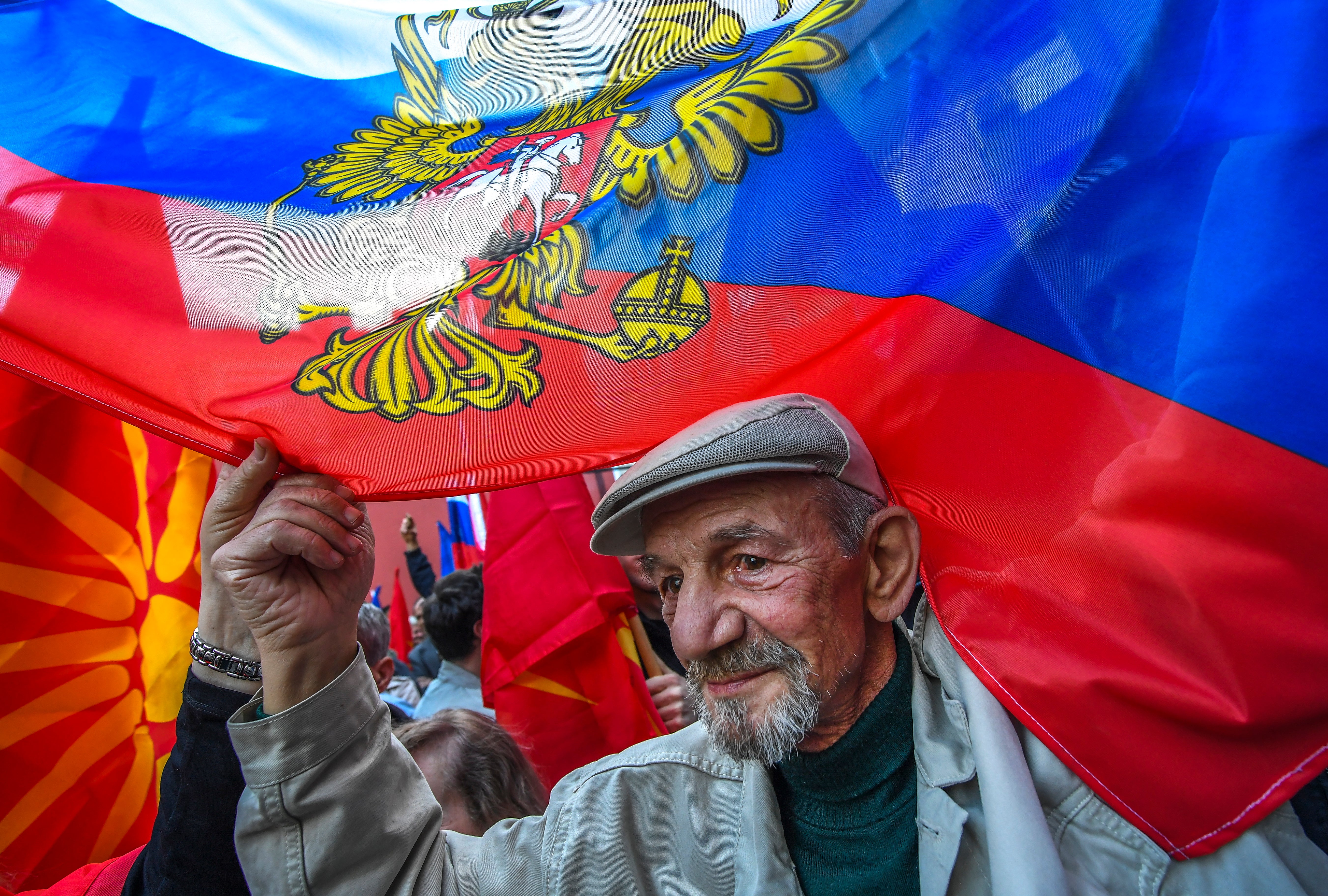
Russia is not the only country to build political influence in the Balkans. Despite accusations by some that they do not focus enough on the region, the US and Europe have maintained strong diplomatic presences and contribute to infrastructure and development projects.
The European Union and the European Investment Bank have corralled £3bn to support the western Balkans. USAID has contributed millions to help bolster journalists in the region. The United Kingdom late last year appointed Sir Stuart Peach as a special envoy.
Under president Recep Tayyip Erdogan, Turkey has expanded commercial investments and expended diplomatic energy cultivating various players. Major Turkish banks, especially state-owned Ziraat, large retailers, and medical service providers have opened branches in major cities.
But Turkey balances its support for its Bosniak Muslims clients with key investments not only in Republika Srpska but in Serbia itself. Mr Erdogan has cultivated friendly ties with the government in Sarajevo, and is viewed as a hero by some Bosniak Muslims. But Ankara also has strong relations with Alexander Vucic as well as Mr Dodik, who appears to view him as a mentor.
“Turkey is very careful,” said Milos Solaja, a professor of political science at Banja Luka University.
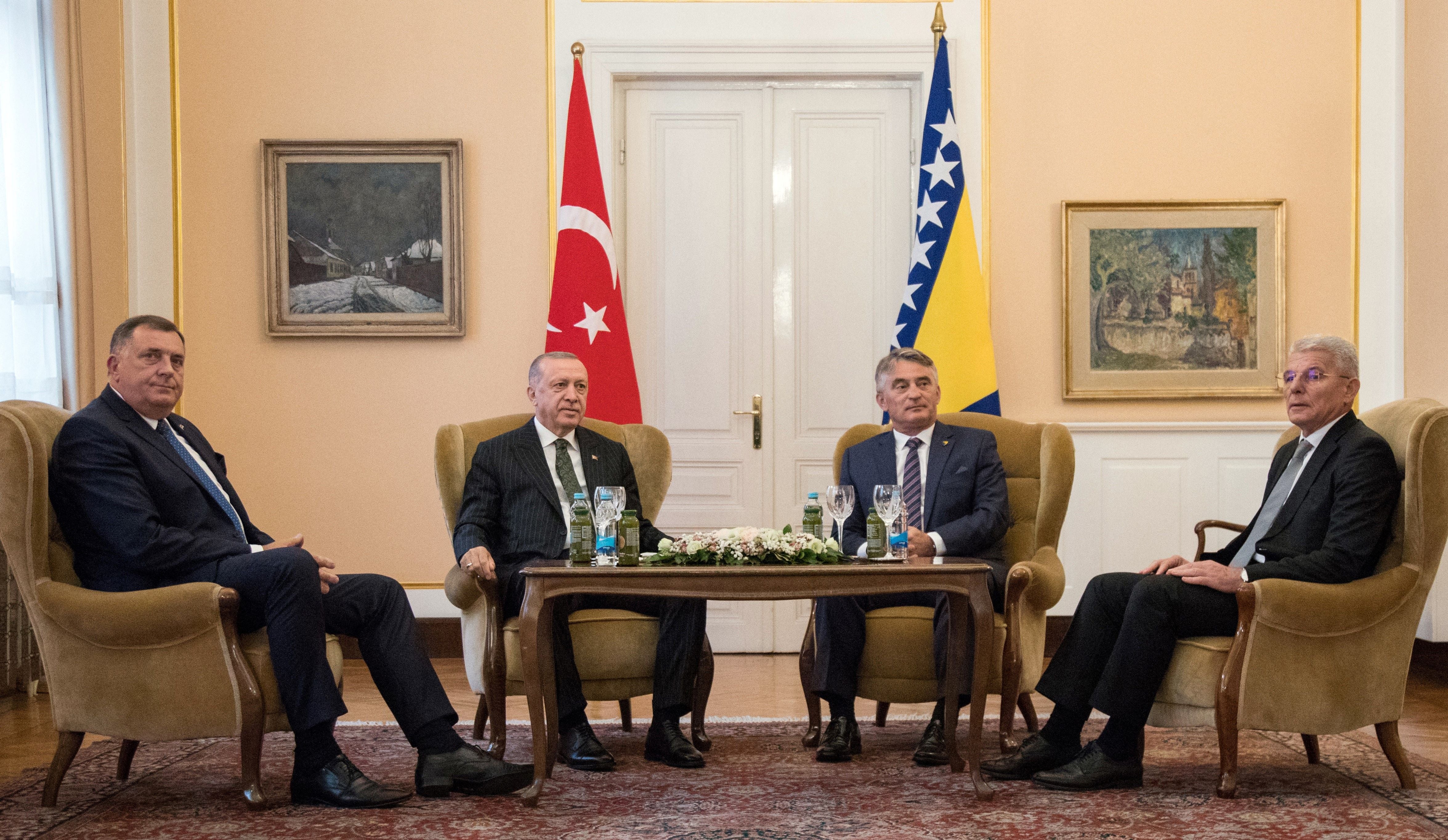
To be sure, the Dayton accords that ended the war in the Balkans were deeply flawed, perhaps fatally so.
Serbs never accepted the breakaway republic of Kosovo, and have long been nervous about the status of their ethnic brethren living as minorities throughout a region they dominated during much of the 20th century.
But asked why those tensions have only now come to a boil, many analysts blamed the Kremlin.
“Ten years ago you didn’t have such an assertive Russia,” said Mr Tucalo.
Russia has also managed to exploit the failure to draw the former Yugoslavian states into the European Union, as it did with Croatia and Slovenia, even as the west is a major stakeholder in the region.
Mr Tucalo cited surveys that suggested Bosniaks viewed Turks as the primary investor in Bosnia-Herzegovina while Serbs regarded Russia as the main investor. In reality, Europe provides the bulk of investment, and is also the main source of remittances from people abroad.
In Serbia, too, a recent study showed that most Serbians viewed Russia and China as the biggest investors in the country. In reality, the biggest investors are the United States and the European Union.
“We wish to be in Europe not in Russia,” said Nihad Kresevljakovic, a historian in Sarajevo. “We still believe in Europe, even if we don't have reason to, and even if it’s more than they deserve.”



Join our commenting forum
Join thought-provoking conversations, follow other Independent readers and see their replies
Comments